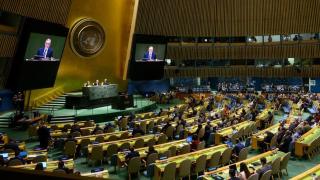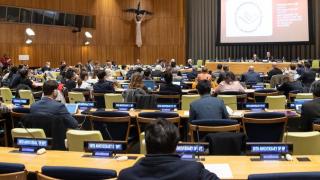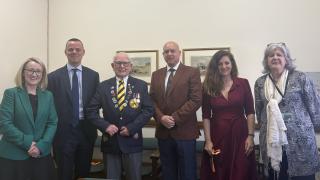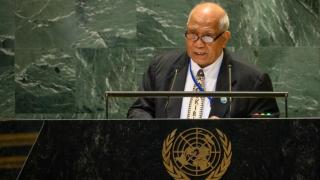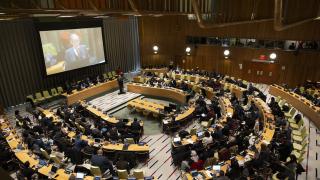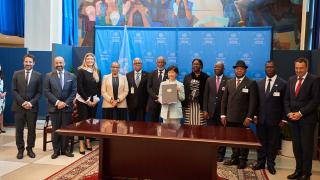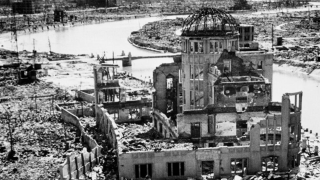
This week marks 80 years since the atomic bombings of Hiroshima and Nagasaki, the first and - so far - only times that these catastrophic weapons have been used in warfare.
The testimonies shared by the survivors shed light on the uniquely destructive impact of nuclear weapons, which are intrinsically indiscriminate, combining devastating immediate impacts with long-lasting poisonous effects on health, the environment, and future generations.
These weapons were developed at a time when major powers were engaged in total war, where civilians were routinely targeted. Yet the horrors of the Second World War also gave rise to systematic efforts to control and limit war, protect civilians, and provide for those forced to flee. Six months after the bombings of Hiroshima and Nagasaki, the UN General Assembly passed its first resolution, calling for the control of nuclear weapons.
UNA-UK salutes the courage of the hibakusha, the survivors, from Hiroshima and Nagasaki, many of whom have worked for decades to reveal the truth about the effects of nuclear weapons. Their call for “no more Hiroshimas, no more Nagasakis” has resonated around the world and helped to affirm the taboo on nuclear weapons use, along with the testimonies of the survivors of nuclear testing around the world.
Today the world risks gradually forgetting the lessons of 1945, and the reasons why so many countries came together to build a body of international law and multilateral diplomacy, to prevent future existential horrors. The risks of nuclear use are rising, amid growing geopolitical tension among nuclear-armed states, and the decisions by all P5 nuclear-armed states, including the UK, to expand their nuclear arsenals instead of meeting their Nuclear Non-Proliferation Treaty obligations to pursue disarmament.
The risks are compounded by a general weakening of investments in peacemaking and mediation, including the atrophying of dialogue between nuclear-armed states and continued erosion of bilateral arms control between the two countries with the largest nuclear arsenals: the US and Russia.
Jane Kinninmont, Chief Executive of UNA-UK, shared her reflections:
Sadly, we cannot be certain that the world will have another 80 years without a nuclear bomb being dropped
We can easily imagine a future scenario where humans look back from a devastated world and wish we had done more to advance nuclear disarmament while we still had a chance.
The commemorations of the atomic bombings represent a global moment of reflection on what needs to be done to prevent a future nuclear war. Key steps should include a recommitment by major powers - including the UK - to non-proliferation and disarmament; a serious and ambitious scaling-up of multilateral dialogue on arms control and risk reduction to meet the challenges of today, including the impacts of new technologies on nuclear risks; condemnation of any uses of nuclear threats; justice for the victims of nuclear testing, and support for international scientific exchange to understand the full scale of the threat to humanity and the planet.
UNA-UK is also glad to be a co-signatory of the #HumanRaceNotArmsRace Community Statement marking 80 years since the atomic bombings, which emphasises among other things that “A future free from nuclear weapons is not only necessary - it is within our power”.
Photo: The ruins of Nagasaki, 9 August 1945. Credit: UN Photo/DB.

